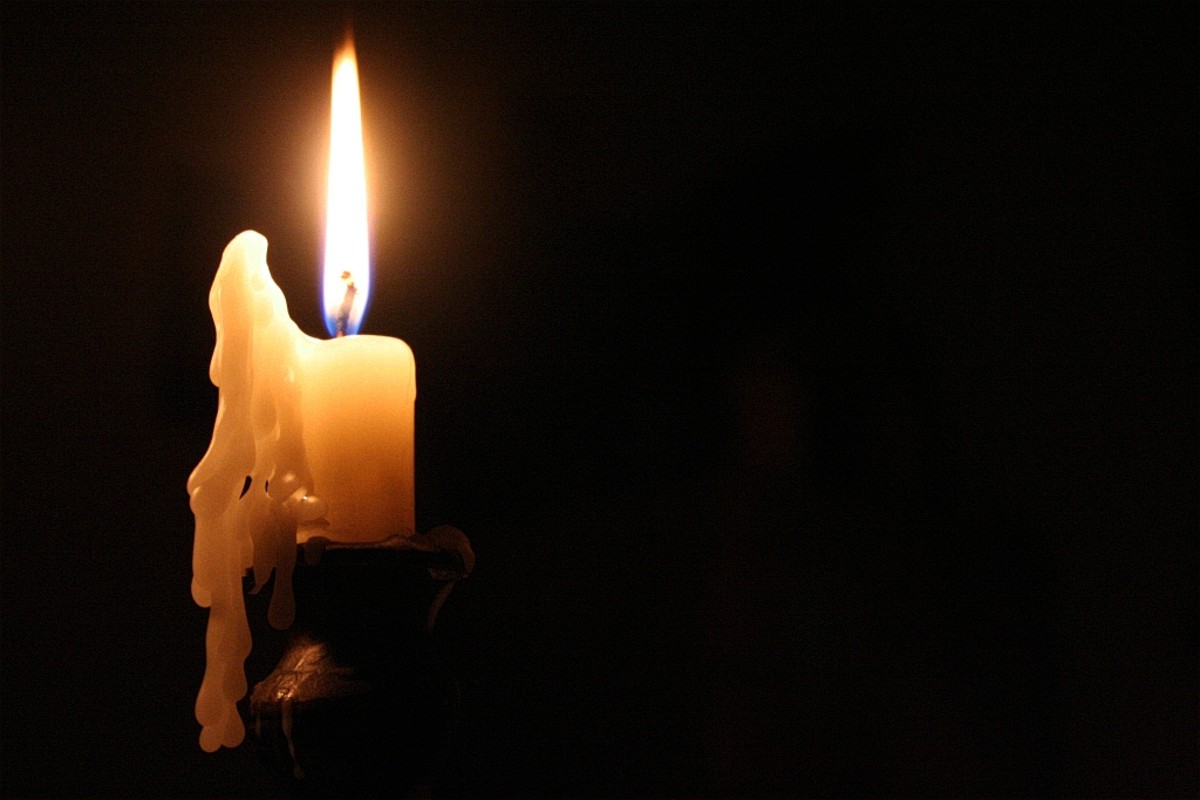Poetry Analysis: "Personae Seperatae" by Eugenio Montale
Background
Eugenio Montale was born in Genoa in 1896. During World War I he served on the front lines of Austria as an officer. After the war, however, he became an opponent of fascism and the policies of the Italian government.
Montale write a poetry of resistance that has been described as part of the hermetic movement, critiscized for it’s trend towards obscurity, flooded with cryptic or esoteric imagery and metaphor. Yet Montale rejected that description of his work, claiming that no poet would strive to be hermetic on purpose, though he did admit that neither would any poet seek to create poetry who’s main purpose is simply to be “understandable.” (Rebay).
Montale was profoundly influenced by his experience in the war, and his poem “Personae Seperatae” speaks to the pervasive “cultural pessimism” in the aftermath of that the war through his use of imagery (Forche). Just as the people of the time struggled to find meaning within the framework of world events, so too must the reader of Montale’s poetry seek to decipher the ultimate intent of the work.

The Imagery of Justice
The poem begins with an image of a golden scale, which traditionally represents justice. The title of the poem is in Latin, which points to a corresponding interpretation of the scale in the opening line. In ancient Greco-Roman mythology, Themis, or Justitia, is the Goddess of Justice, often depicted holding a golden scale and blindfolded. Themis/Justitia embodies divine justice, a divine order, yet is upheld by the earthy concept of custom and laws (Lindemans).
As the golden scale of the poem “emerges” only briefly, before “melting away,” there is an impression that what justice, what divine order, is being presented is but a fleeting vision. This is indicative of the overall style of the poem, images presented in brief before melting away to the next, with little explanation of the significance of each, part of the “hermeticism” of the work, yet also speaks to an overall quest for a sense of justice during the time, or a feeling that it may indeed be a fickle thing.
Personae Separatae
Like the golden scale that emerges
from the somber background, then melts away
in the corridor of skeletal
carob trees, are even we "separated persons"
in the eyes of others? Speech is a little thing;
in these raw and clouded new moons, space
is little too; what's missing,
what wrenches the heart and makes me linger here
among the trees, waiting for you, is a lost
Separated Persons
As the golden scale recedes, we are presented with the information that the “somber background” from which it has emerged is actually a “corridor of skeletal carob trees.” As Montale places “corridor of skeletal” on one line, and “carob trees” on the next, there is an image of stark rows of bones, of bareness aligned in rows. In the corridor of the skeletal there is little to sustain life, only the remnants of it.
The next line ("carob trees, are even we separated persons") holds what is positive and good, paired with the question “are even we separated persons?” Because the idea that the “we” is separated is questioned rather than stated as a fact, paired with the image of the carob tree, implies that the “we” in this instance is a positive, a reminder of hope, in contrast to the what is dark or devoid in life. This is a common theme in Montale’s poetry; he frequently wrote about an unnamed woman who serves to represent a sense of personal salvation and hope in the midst of darkness (Rebay).
As the poem continues, the question of separated persons is completed on the subsequent line. Are they separated persons “in the eyes of others?” implies that though there may be some form of physical separation happening, there is still a connectivity that remains unbroken.
The line finishes by saying that “speech is a little thing,” thus pairing the sensory “sight” with “speech.”As the eyes of others may view the pair as separated, there remains an indestructible, and very personal link, so too can words not be enough to describe the connection that still exists.
sense, or fire, if you prefer, to print the ground
with parallel figures, reconciled shadows,
shafts of sunlight framing the fresh-cut trunks
in the clearings, and fill the hollow stumps
where the ants nest. The human forest
is too mutilated and torn, that everlasting
voice too deaf, too fretful
the gash melting over the snowy
peaks of Lunigiana. Your form
Paralells
Though the poem at this point is very personal, discussing the relationship, or lack thereof, between the two “separated persons,” it is actually functioning on another, more public or generalized level as well. In the middle of the poem Montale speaks of “parallel figures,” and indeed there are many parallels coexisting within the poem.
Just as it tells of the relationship between the two people, there is also a discussion of the post-war landscape, and the overall human experience within that landscape. The line "Speech is a little thing;" may also allude to a sense that words are almost insufficient to describe what is happening in this aftermath of the war. As this line unfolds into the next, we learn that it “is a little thing/ in these raw and clouded new moons, space/” which refers to the landscape as a whole, the space under the “moons.” The new moon is a time of darkness, darkness of spirit after the wars, yet also of beginning. There is an emptiness inherent that echoes the souls of the survivors, yet also a promise of new growth, new life.
Another parallel is happening within the setting. The poem takes place in a forest, which one level functions as a real forest, rooted in this world. There are specific references to the landscape; trees, ditches, eel-pots, the snowy peaks of Lunigiana, a region of Tuscany. Yet this earthly setting also possesses a dualism, just as it is rooted in the world, it also exists outside the bounds of the real. Lunigiana literally translates as “moon and earth," and this name can be interpreted as speaking to the fact that the setting is both of the earth and yet apart.
This alternate forest, the parallel, takes place in a figurative nether-world, existing in dream imagery, as metaphor or part of the unconscious. This alternate forest is the manifestation of the collective sense of post-war despair, grief and heartache, an imagistic no-man’s land. It is described as a “human forest” “mutilated and torn.” Within this construct, there is a breakdown of time, as we see in the lines “now that at day-/break, it’s already almost night.”
passed this way, paused by the ditch
among the eel-pots piled on the ground, then dissolved
like a sigh, all around--no gurgling horror
was in it, in you light still found
light, today no longer, now that at day-
break, it's already almost night.
Missing Space
There is also a deconstruction of space, as seen in the lines “space/ is little too; what’s missing.” The missing element of space speaks to the fact that within this alternate forest, distance is not enough to keep the “separated persons” apart, which is what allows the narrator to “linger here/among the trees, waiting for you.” He seeks “reconciled shadows,” to reunite in some sense, even if it is only with the spirit of his “separated person,” presumably a woman whom he has loved, though this is not stated explicitly.
At the same time that this particular human drama is unfolding, the parallel of the larger group is also waiting in this forest of dreams. Here society as a whole lingers, in hopes of finding a renewed sense of hope, or at least some sweetness to fill the void, to “fill the hollow stumps where the ants nest.”
There are no line breaks in “Personae Separatae,” leaving a sense of a lack of conclusion. There is no call and response, no final stanza providing a resolution to the sense of discord presented. The poem, placed in the context of the post World War I landscape, is asking questions about this changed landscape, and the future to come.
Montale, through the poem, asks if there is room for healing, for regrowth, will the hollow stumps give rise to new vegetation, or is the forest of the heart, and the humanity that is left, too scarred by what has transpired for this to occur? Is there a sense of justice, how will man’s actions and words be judged, and in that is there room for forgiveness, for hope? The mythological Goddess of Justice who holds the golden scales is blindfolded. Is there, like the Goddess of justice, a blindness, an arbitrariness at work? Is there a sense of the divine in this idea of the arbitrary, or is it simply that no person is different than another. Is there a sense of fairness to it all? Why is one of the separated persons to be ushered into the afterlife while another remains on earth?
These are the questions that Montale asks, while questioning also the role of the poet. “Speech is a little thing,” begs the question of whether speech is sufficient in this context, “that everlasting voice too deaf, too fretful.” Is the voice of poetry, of the poet, really listening, is it too concerned with worry or small complaint?
Reconciliation
At the end of the poem, there is a sense that though many questions remain unanswered, the act of questioning, the long stanza, does contain some answer. “Your form/ passed this way…/then dissolved/ like a sigh, all around-no gurgling horror/ was in it…” We get the impression that the atrocities of war, for all its blindness, its arbitrary horror, can make way for something more pure.
Montale continues “in you light still found/ light.” Like the golden scales that melt away, an alchemical transformation, there is a sublimation at work in the disappearance. Montale articulates a sense of loss, of longing, of pain, of questions without answers, yet still provides an image of hope for the future, that like his “separated person” the collective psyche of the post-war world may as well one day find light.
The poem ends with the sentiment “today no longer, now that at day-/break, it’s already almost night.” It is a new day, a new beginning. Because of all that has transpired, this new day is also “night,” it is a new day dark with the awareness of “what’s missing, what wrenches the heart.” Despite this, like the “new-moons,” there is promise of tomorrow that will be less so, of further cycles of life after this dark time has passed.
Montale embodies poetry of witness in his discussion of the arbitrariness of fate (justice), the question of whether there can be a forgetting of the past. As society has ceased its normal function, he retreats into the realm of the dream, into altered time and space, a fragmented past. The collective dead, and collective memory become figural in the separated person, and consciousness becomes as altered as the new landscape.
As for the role of the poet, the compulsion to bear witness, we must return from the forest of dream, luni, to the forest of earth, giana. The region of Lunigiana in reality is known for its culture, it’s history, but also for it’s famous “Gulf of Poets."
In the construct of the real, for these two do exist as parallels within the poem, it is poetry which enables the narrator to glimpse his “separated person” again. It is within the realm of poetry, which does exist of this earth, that “light can find light;” the poet can bear witness, provide hope to a people, and “reconcile shadows.”
Sources
Forche, Carolyn, ed. Against Forgetting. Twentieth-Century Poetry of Witness.
New York: Norton, 1993. Print.
Rebay, Luciano. “Montale, Eugenio.” Columbia Dictionary of Modern European
Literature. Eds. Jean Albert Bede and William B. Edgerton. New York: Columbia
University Press, 1980. Literature Online. Web. 21 March 2009.




